- Home
- Joseph Bruchac
Brothers of the Buffalo Page 12
Brothers of the Buffalo Read online
Page 12
After dumping twenty barrels of booze so foul that the scent of it alone might kill a horse, the party began the journey back to Camp Supply. Although they made better speed without the wind in their faces, the trip was nearly as painful and cold as had been the journey out. By the time they entered Camp Supply they felt more like icicles than men. The surgeon took one look at them and sent them all straight to the hospital. Seven of the troopers and three of the whiskey traders, the senator’s son among them, ended up hospitalized for frostbite.
Wash, perhaps because being smaller there was less of him exposed to the elements, was not among those who needed to be treated. But Charley’s hands and toes were no longer brown but bright blood red. The surgeon had him stick both hands and feet into buckets of cold water. Frostbitten parts needed to be thawed out slowly. Hot water would have hurt more than helped.
As fast as it had come in with its deep drifts and freezing blasts of arctic air, the weather changed again. The snow melted away. Within a week, it was sixty degrees warmer.
“More fickle than a pretty woman,” Josh said as he and Wash strolled past the parade grounds and out the gate toward their tents.
Wash shook his head. “Don’t know if I’d say that.”
Josh looked down at him and raised an eyebrow.
“How’s that, Wash? You thinking about someone? Some little brown-eyed girl?”
Wash felt his cheeks begin to burn. Why had he said that? Why couldn’t he just keep his mouth shut and his thoughts to himself? He pressed his lips together and looked down at the ground as they walked, not wanting to meet Josh’s eyes.
Josh chuckled and patted his friend on the shoulder. “Is something starting to happen between you and that little girl?”
Wash stopped and turned to look up at Josh, his fists clenched. “There is nothing happening between me and Bethany. Just talking, that is all.”
Josh held up both his hands, palms toward the sky. “Whoa, pardner. Now, now. Don’t you get riled up. I’m just joshing you. Miss Bethany seems like a fine young lady to me. Don’t mean nothing bad.”
Wash took a deep breath, more surprised at his own reaction than his friend had been. “All right, then.”
It had been only a week since he had found himself on real speaking terms with Bethany Brown. A week since he’d worked up the courage to say a polite “Howdy-do, Miss,” when he saw her and be answered by her equally polite but far sweeter voice saying “I am well and how are you?” back to him. It was such a change from his being tongue-tied when he saw her that Wash could hardly believe his good luck.
But a day ago that had changed even more.
As he stood on attention outside the officers’ quarters, Sergeant Brown had come up to him.
“At ease, trooper.”
“Sir.”
“You been speaking with my niece?”
Wash’s heart sank lower than a stone dropped into a deep well, sure that what was to come next would be an order from the sergeant to stop bothering Miss Bethany.
“Yes...sir,” Wash replied, his voice tight. “Just a polite hello now and then. That’s all.”
Sergeant Brown smiled. “It’s all right son. I ain’t about to bite your head off. Now you like to read, don’t you?”
“Yes, sir, I suppose I do,” Wash answered, as confused by the question as by the way the tone of Sergeant Brown’s voice had changed.
“I know you do,” Sergeant Brown chuckled. “And unless I miss my guess, you a young man who knows what good manners is.” Sergeant Brown shoved his face close to Wash’s. “Don’t you?”
“Ah, yes. Yes, sir.”
The sergeant leaned back. “I expect so. I do expect so. So, how would you like to come by this evening after mess when you off duty and chat with my niece about those books?”
Wash caught his breath, trying to make words come out of his mouth, even more tongue-tied than he had been those times when he had tried to say hello to the sergeant’s niece, when she seemed as distant and bright and unreachable as the morning star.
“Well?” Sergeant Brown said.
“Ah, yes, sir, that is, if Miss Bethany would like me to, sir.”
Sergeant Brown put both hands on Wash’s shoulders. “Son, you just don’t know nothing about womenfolk, do you? You suppose I would be asking you this if she hadn’t asked me? So you be there after mess, right?”
Wash nodded.
“Good. Me and my wife—who will be right in the room whilst you two talk about books—and my niece will be expecting you.”
Wash shook his head at the thought of the way Bethany looked as she sat on that straight chair with a book in her lap. Himself not two feet away from her in his own chair, leaned close enough so they could both look down on the same page as she held the book in her small, perfectly shaped hands. Hands made as fine as the Good Lord could make any pair of hands. The two of them talking about Shakespeare and, truth be told, Wash enjoying the fact that he could once again talk with someone about a book—the way he and his father had talked—nearly as much as he enjoyed the sweet sound of her voice.
Her saying, “Why, Private Vance, what an intelligent way you have of describing the plight of the Prince of Denmark!”
Him replying, “Revenge is something that can drive a man or drive him insane.”
And then her lifting a hand to tap her index finger thoughtfully against her chin before turning the page.
“I do hope we’ll have time to talk about every one of the Bard’s plays.”
I do hope so, indeed, Wash thought now as he and Josh ducked into their tent.
Charley had gotten there ahead of them. As he often did since being discharged from the infirmary, he was sitting on his cot with his left shoe and sock removed, looking at the foot that was now missing the little toe that had turned black as a burned piece of meat and had to be lopped off.
“Charley,” they both said.
“Boys,” Charley replied, still staring down, his voice grim as a grave digger. “Y’ hear the news?”
“What?”
“Them white men we arrested, the ones they shipped up to Topeka, Kansas. I jes’ overheard the lieutenant talking ’bout them. And what do you suppose happened up there to them SOBs?”
“They get tried and throwed in jail to rot?” Josh asked.
“Nope.”
“Hung?” Wash ventured, seeing in his mind the evil eyes of Tom Key glaring at him from that wolfish face.
“Hah!” Charley rolled his eyes. “Not in Kansas. The white men on that jury and that old white judge took pity on them. ’Specially since one of them was a senator’s son. Gave ’em a lecture on mending their ways, fined ’em each fifty dollars, and then set ’em as free as jaybirds. Bet you a dollar ’gainst a dime that they
go right back to selling whiskey to our Indians. Want to take that bet, Wash?
Wash shook his head, feeling as glum now as his friend and remembering the words that were mouthed at him in the freezing cabin. You’re a dead man.
Revenge, he thought, tapping the watch in his pocket.
“Nope,” he said.
Charley went back to staring at his foot.
“Wish we had shot at least one of them. That might have been a fair trade for a toe.”
“Do you know the story of Porcupine Bear?” Gray Head asked.
Wolf shook his head. He was too ashamed to speak.
Next to him was his best friend whose name was no longer Dirty Face. His best friend also shook his head.
“It was Porcupine Bear,” Gray Head continued, “who spoke strong against the evils of firewater. He spoke of how it makes us so weak that we cannot even pull back our bowstrings. He spoke of how we become fearful to our own families. Do you remember now?”
The two young men nodded, their eyes turned down.
It is less than one moon since we returned with that herd, Wolf thought. It is less than one month since we were given great praise. Less than one moon ago my friend was honored
with a new name. He became Horse Road. But now…
“Then what did Porcupine Bear do?”
Wolf reached up. He touched the bruise on his forehead where Horse Road had struck him with a heavy stone. Next to him, Horse Road was feeling his own bloody lip. Wolf had kicked him there.
After finding that hidden herd, they had done good things. They had driven the horses out of the box canyon. They had set fire to the whiskey wagon. But before setting that fire, Wolf had done something else. He had picked up one of those bottles and slid it in the parfleche bag slung over his horse. His friend smiled at him as he did it.
Both had forgotten about that bottle. There was so much excitement that followed their triumphant return. Dirty Face’s old name had been thrown away. The new, strong name Horse Road had been bestowed upon him. The two of them had been seen as heroes.
Until last night. That was when Wolf noticed the parfleche bag that he’d placed against the back wall of the tipi. He had picked it up. He had felt the weight of the bottle within it.
He had hefted the bag. As he did so, he had remembered the tingling of those drops of whiskey on his tongue. It had not harmed him. Maybe the stories were exaggerated. Maybe his own mind was too strong to be made foolish by whiskey. He had put the bag under his arm and gone to the tipi of Horse Road’s family. He had scratched softly on the door. His friend was a light sleeper. Only he would wake.
Horse Road had come crawling out.
“What?” he whispered.
Wolf held up the dark bottle.
“I am curious about this medicine water. Shall we try it?”
Horse Road looked over his shoulder. None of his family had wakened. Then he grinned the way he had when they were small children and sneaking out to do mischief. His teeth shone white in the darkness.
“Hee’he’e. Good idea.”
They wrapped warm robes about them and walked out onto the calm snowy prairie. Above them was the bright full moon. Sentries had been posted, watching over their now much larger horse herd. But those watchers were on the far side of the herd, and everyone else was asleep.
“We will celebrate,” Wolf said. He opened the bottle.
The first drink had been hard to take. Wolf coughed and his eyes watered. His mouth and tongue were on fire.
Horse Road laughed. He grabbed the bottle.
“Do it like this,” he said. He tipped it up and took an even bigger drink than Wolf. Then he let out a great cloud of breath from his mouth. It looked like smoke in the cold air.
“Epeva’e,” he said. “It is good.”
He handed back the bottle. Wolf drank again. He did not choke this time. The more they drank, the easier it became. Then they began to act like children.
“I am happy,” Horse Road shouted. “Happy, happy!” He belched and shook his head. “Are you happy?”
“I am a human being,” Wolf shouted. The prairie was spinning around them. The moon was dancing up and down in the sky. The next thing he knew, he had hold of Horse Road’s neck. The two of them were rolling in the snow. Wolf was laughing.
Then Horse Road hit him. He hit so hard that Wolf found himself on his back, arms splayed out.
“Your head is an egg,” Horse Road said. His voice was serious. He picked up a rock. “I am going to break it open.”
Wolf kicked him in the leg. As Horse Road fell, Wolf leaped. He began to kick his friend. He kicked him again and again, laughing like a crazy person. He would have kicked him more times but their fighting had been so noisy that the horse herd was stampeding. People were shouting. Hands had grabbed hold of them as other hands tied them up to keep them from killing each other.
Wolf put his own hands up to either side of his head. Horse Road had been right about it being an egg. It felt like an egg. It was a cracked egg with a dead chick inside it.
“Listen,” Gray Head said to them now. There was sadness in his eyes. He was seeing the story he was about to tell. “It was back before the Kiowas became our allies. Forty-eight of our Bowstring Soldiers were killed by them. We had to make the Kiowas cry. Porcupine Bear was then chief of the Dog Soldiers, a man of great honor. So it fell to him to bring together the war party. He traveled from one camp to the next, seeking volunteers. At last he came to a village where he had many relatives. It was by the South Platte River, not far from Fort Laramie. Traders from the fort had just visited that village and brought some useful things. But they also brought whiskey. Porcupine Bear’s relatives were already drinking. It would have been an insult to refuse to drink with them. Just one drink. Then one more. And one more. Soon he was sitting propped up in the corner of his relatives’ lodge. He was singing Dog Soldier songs, ones not meant to be sung unless one was going into battle. That was shameful. What happened next was worse.”
Gray Head paused. He looked at Wolf. Though it hurt his head to move it, Wolf nodded.
“Two of Porcupine Bear’s cousins were very drunk. They began to fight each other. Just as you two were doing. One of them, Little Creek was his name, managed to get on top of the other one, whose name was Around. Little Creek pulled his long knife and tried to stab Around to death. Around called for help. Porcupine Bear took the knife away from Little Creek. Then, because he, too, was crazy with drink, Porcupine Bear stabbed Little Creek many times and killed him.”
Gray Head stopped talking again. His gaze turned away from the two young men who kept their heads lowered in shame. Gray Head sighed.
“So it was that Porcupine Bear became outlawed. And the Medicine Arrows were not carried against the Kiowas by Porcupine Bear’s Dog Soldiers, but by what was left of the Bowstring Society. That is why his part of the Dog Soldier Society began to camp away from the rest of the people. All because of the firewater.”
“Why?” Wolf asked. “Why did he drink after speaking such clear words against drinking?”
Gray Head did not reply. He looked at Wolf. Wolf saw the question the elder was asking with his eyes.
Why did Horse Road and I get drunk?
Wolf felt his face grow flushed.
“Ah,” he said.
The three of them sat for a long time. It was a silence that Wolf thought might never end. Then Gray Head sighed again.
“Even Sweet Medicine made mistakes,” Gray Head said, his voice soft. “We human beings are all weak. We all make mistakes. Even those whose names are great may make mistakes. But Maheo takes pity on us when we humble ourselves, when we try to do better. Can you two do better?”
“Hee’he’e,” the two young men answered, their voices small.
Gray Head slapped his palms together, so suddenly that both Wolf and Horse Road jumped.
“Aahto! Listen,” Gray Head said. “Mistakes may be forgiven, but they must not be forgotten. I do not mean that you must carry guilt. If the water in your cup has gone bad, you must pour it out, not carry it around with you. Instead, use what you have learned to help find a better path next time, a path that will make your life of worth to the people. Do you understand?”
“Hee’he’e,” Wolf answered, his voice louder this time.
Horse Road paused before he spoke. “Hee’he’e,” he agreed.
His voice sounded less certain. That worried Wolf. Was Horse Road truly going to set aside his guilt? If not, he might be inclined to do foolhardy things to prove himself.
Gray Head did not seem to notice. “Good,” he said. “You both have good hearts. I have seen this in you. So I have work for you to do. You will be my wolves. You will scout around and come back and tell me what you find. I will trust you. Even though the agent is a good man, no food comes for us. So, my wolves, scout about and see if there are still buffalo—or any game at all—to be found. I know you can do so without the ve’hoes catching you, but be careful. And harm no one. Do you understand? Your job will be to help the people, not start a war. “
Wolf nodded. Despite his aching head, his spirit had been lifted by Gray Head’s words.
Yes, he thought. To help the peop
le. That is what I want more than anything else. I want to help our people survive.
One time, Mama said, Foolish John got a bottle of rum. He stole it from Old Master
and went down to the creek bottom that night
to drink it.
The full moon was shining bright as he sat there drinking. Pretty soon the frogs out on the pond,
they began to sing.
Brrum, brrum, brrum, the big frogs sang.
Foolish John, he heard them.
“You want some of my rum?” he said. “I be glad
to bring some out there and share it with you.
But I don’t know how to swim. How deep is
the water here?”
Then the little frogs started singing.
Nee-deep, nee-deep, nee-deep.
“Well,” Foolish John said, “if it is only knee deep,
then I can come right on out there.”
But as soon as he waded in, he went in over his head, lost that bottle, and just about drowned.
INDIAN FIGHTING
The Texas frontier.
My, my, Wash thought as he walked the parade ground perimeter, careful not to step on the recently seeded but already browning lawn. Am I really here?
“Wash,” Charley had said when word came of the transfer of their company, “bet you a dime it is goin’ to be hotter in more ways than one where we goin’.”
Wash had not disagreed. It was not just because no one ever won a bet against Charley Smith—to the point where no soldier, no matter how good he believed his luck to be, would sit down to play a game of chance with Charley. It was also because the past three months had convinced Wash that anywhere on earth would be warmer than Camp Supply. Heading south sounded like a blessing and a relief.
They’d been told it was also likely to be hotter in Texas in another way beyond mere weather. And that excited those in Company D who had joined up to shoot at something other than targets and jackrabbits.

 Peacemaker
Peacemaker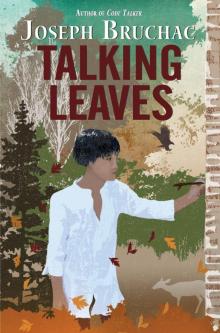 Talking Leaves
Talking Leaves Found
Found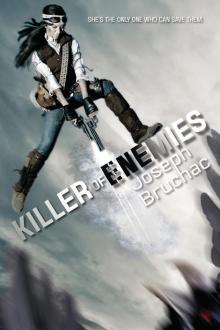 Killer of Enemies
Killer of Enemies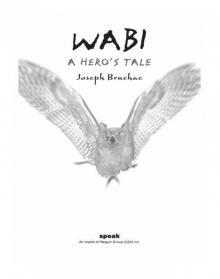 Wabi
Wabi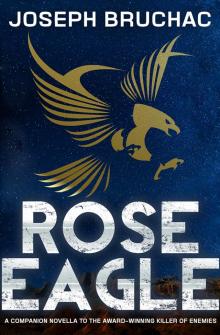 Rose Eagle
Rose Eagle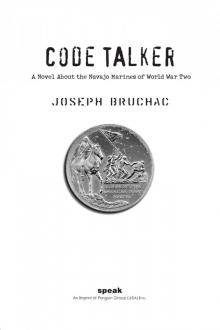 Code Talker
Code Talker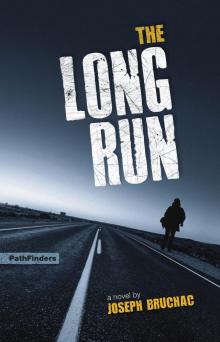 The Long Run
The Long Run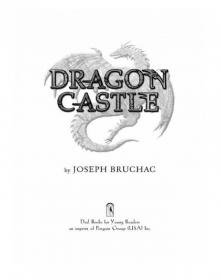 Dragon Castle
Dragon Castle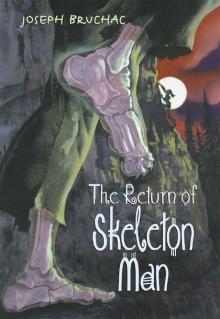 The Return of Skeleton Man
The Return of Skeleton Man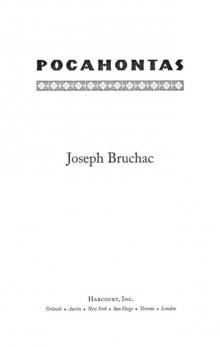 Pocahontas
Pocahontas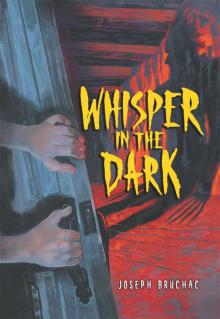 Whisper in the Dark
Whisper in the Dark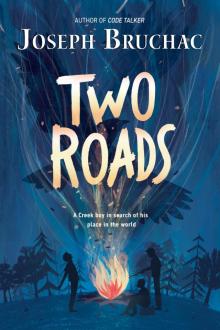 Two Roads
Two Roads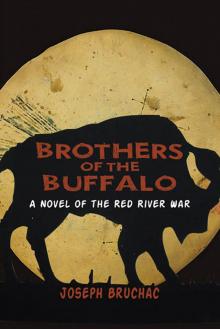 Brothers of the Buffalo
Brothers of the Buffalo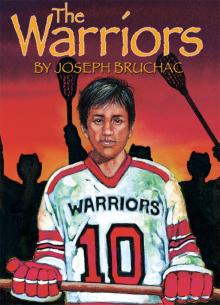 The Warriors
The Warriors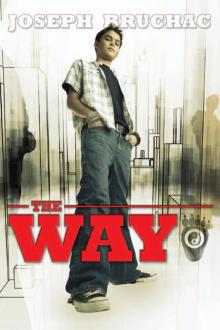 The Way
The Way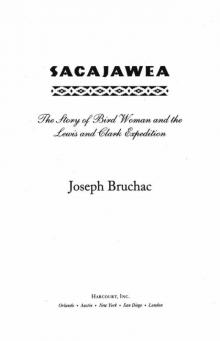 Sacajawea
Sacajawea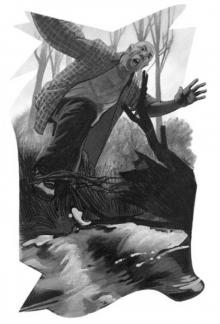 Night Wings
Night Wings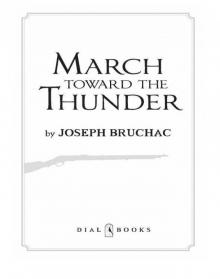 March Toward the Thunder
March Toward the Thunder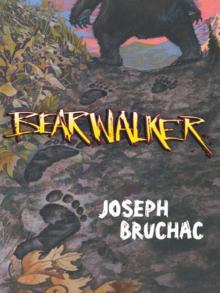 Bearwalker
Bearwalker Skeleton Man
Skeleton Man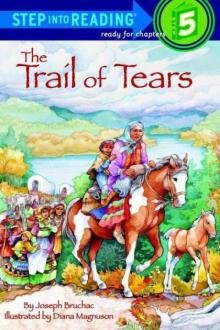 The Trail of Tears
The Trail of Tears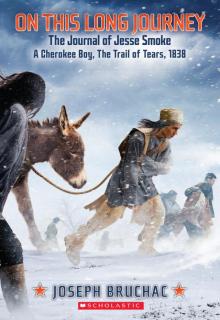 On This Long Journey
On This Long Journey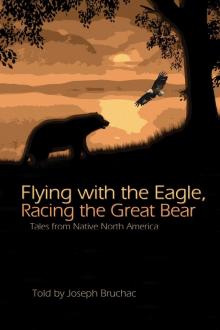 Flying with the Eagle, Racing the Great Bear
Flying with the Eagle, Racing the Great Bear